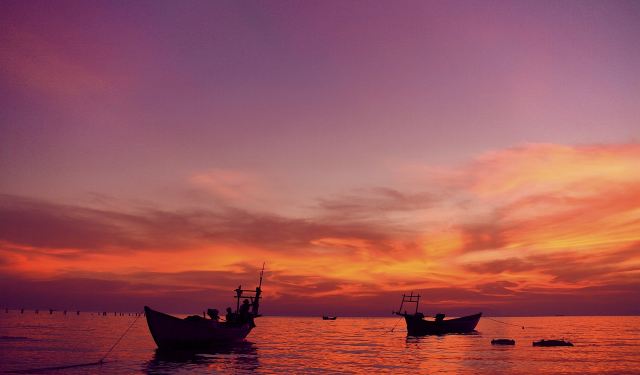Unlocking the Untapped Potential of Fisheries and Aquaculture Sectors in African, Caribbean, and Pacific Countries – The Food and Agriculture Organization of the United Nations (FAO) has successfully implemented a fisheries and aquaculture development programme in Côte d’Ivoire, Senegal, Tanzania, Guyana, and the Marshall Islands. The programme, called FISH4ACP, seeks to boost fisheries and aquaculture value chains by making them more productive, sustainable, and self-sufficient. It aims to create jobs and preserve biological stock levels while ensuring that growth goes hand-in-hand with environmental sustainability and social inclusiveness. FISH4ACP, funded by the European Union and the German Federal Ministry for Economic Cooperation and Development, is an initiative of the Organisation of African, Caribbean and Pacific States (OACPS).
The FISH4ACP’s innovative approach takes all players into account at all stages of the value chain, from net to plate, and seeks to balance production and protection. By striking this balance, the programme can contribute towards fair income distribution and decent working conditions while championing sustainable fisheries and aquaculture in Africa, the Caribbean, and the Pacific.
Report points
FISH4ACP’s first five reports provide a baseline for supporting the countries in strengthening their fish value chains, increasing self-sufficiency in fish production, creating local jobs, and maintaining sustainable stock levels. The reports highlighted the following findings:
- First, Côte d’Ivoire has significant potential to become self-sufficient in fish production through a 10-year strategy to boost tilapia production from the current 6,000-8,300 tonnes per year to 68,000 tonnes by 2031 without extra burden on the environment. This would meet the entire national demand, generate jobs, respect good environmental practices, and increase resilience.
- Second, the declining catches of a variety of prawn known as seabob in Guyana need to be addressed while promoting artisanal fisheries, particularly strengthening the position of women. The study found key opportunities to satisfy strong demand from the US and European markets for more high-value seabob if biological stock issues can be addressed and bigger shrimps can be caught. There is also strong domestic demand for fresh seabob that can be sold to restaurants and supermarkets.
- Third, the Marshall Islands can generate more value and local jobs from the multi-million dollar tuna trade, boosting it to $55 million by 2031 using one type of vessel alone and strengthening its position as a leading hub for tuna through transshipment and containerization. Marshall Islands-based companies are incentivized to shift to new and more efficient loading machines for filling containers with tuna. This will bring down the cost of packing and shipping tuna in containers and allow the fish to be sorted, fetching a higher price.
- Fourth, Senegal can leverage oyster production and boost the number of oyster farms to meet local demand and support the development of modern oyster farming. By 2031, the country aims to boost national production by 30% to 21,000 tonnes to cover more than 80% of domestic demand, with added value nearly tripling to $12.6 million, and full-time jobs nearly doubling from 6,500 to 11,000.
- Fifth, Tanzania can leverage increasing consumer demand and market opportunities to improve the sustainability of Lake Tanganyika’s sardine, sprat, and perch fisheries and bridge the gender gap. Using better processing and cold chain techniques, improved business models with more participation by women, and better compliance with fisheries legislation can help boost value added in the sector by 12% and increase fish processors’ incomes by an average of 42%.
The FISH4ACP value chain analysis is based on 5,200 interviewees, with more than 100 focus groups and 50 stakeholder workshops organized to validate findings. The five value chain assessment reports published helped to field-test FAO’s value chain analysis.
Unlocking the Untapped Potential of Fisheries and Aquaculture Sectors in African, Caribbean, and Pacific Countries







